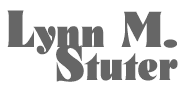

EDUCATION REFORM LAW REVISITED
Lynn M. Stuter
February 25, 2003
NewsWithViews.comMost states have laws implementing the tenets of what would become Goals2000, laws of 1994. Washington state's education reform law, ESHB 1209,was passed in 1993. Anyone who can look at this cart before the horsesimile and not realize that there was a master plan in place are deluding themselves. When Goals 2000 passed, all the state education reform laws dovetailed perfectly.
A constitutional question arises from Washington state's ESHB 1209. ESHB1209, Section 202, § 1, established an appointed body of people called the Commission on Student Learning (CSL), who would ...
1. oversee the writing of the state exit outcomes (the Essential Academic Learning Requirements or EALRs),
2. develop student assessment (the Washington Assessment of Student Learning or WASL),
3. establish accountability systems (the A+ Commission),
4. and take such other steps as deemed necessary to develop a "performance-based education system."
This same section, further on, also states; "Appointees shall be qualified individuals who are supportive of educational restructuring who have a positive record of service, and who will devote sufficient time to the responsibilities of the commission to ensure that the objectives of the commission are achieved."
The apparent phrase here being "supportive of education restructuring." If you weren't supportive of education restructuring, forget being able to have a voice on the CSL. This concept filtered down from the CSL to every committee established to "restructure" education.
It was Thomas Jefferson who said, "It is error alone which needs the support of government. Truth can stand by itself."
When taxpayers, parents, citizens complained about the make-up of restructuring committees, they heard such things as "the committee members represent a cross-section of the community" or "parents are represented on the committee."
To clarify, under our representative governance structure, no one can be said to represent anyone unless elected by secret ballot to do so. Who cares if the committee members represent a cross-section of the community. Who cares if parents were and are represented on the committees. That's irrelevant. What is relevant is the fact that those committee members are appointed, not elected. As appointees, they are only accountable to those doing the appointing.
This type of governance is characteristic of a democracy in which the agenda of the ruling party is rammed down the throats of the citizenry at large via appointed bodies whose make up is such that the outcome is assured.
This presents a major conflict with our representative form of government. Public or government schools are paid for through various forms of taxation levied on the citizens, all citizens. To then block a segment of those citizens from representative governance via appointed bodies, and to do so because of the beliefs of that segment of citizens, is to invoke taxation without representation. The Boston Tea Party was the result of the same ideology.
Thomas Jefferson: "To compel a man to furnish contributions of money for the propagation of opinions which he disbelieves and abhors is sinful and tyrannical."
He also stated, in 1809: "No provision in our Constitution ought to be dearer to man than that which protects the rights of conscience against the enterprise of civil authority."
If those people who oppose education reform have no voice, then to require them to help pay for that which they have no voice in, is tyranny, is oppression, pure and simple.
But this is not the only problem or the primary problem concerning ESHB 1209, laws of 1993.
ESHB 1209 effectively changed our form of government (remember the oft touted "paradigm shift"?) in the area of education, from republican (rule by law) to democracy (rule by man).
Yet the Enabling Act, under which Washington State was granted entrance as a state into the union of states or United States, requires that, "[t]he constitutions [of the states that would be established via the Enabling Act] shall be republican in form..."
This provision in the Enabling Act resulted from the United States Constitution, Article IV § 4: "The United States shall guarantee to every state in this union a republican form of government ..."
"Republic, n. A system of government in which the people hold sovereign power and elect representatives who exercise that power. It contrasts on the one hand with a pure democracy, in which the people or community as an organized whole wield the sovereign power of government, and on the other with the rule of one person (such as a king, emperor, czar, or sultan)" (Black's Law Dictionary, Seventh Edition; 1999)
In order to change from a republican form of government to any other form of government, the United States Constitution must be amended. This requires approval by two-thirds of both houses of Congress and ratification by three-fourths of the several states via the legislature or state convention (Article V, United States Constitution). That has not happened.
In as much as this has not happened, the question arises -- Did the legislators act beyond their authority in passing ESHB 1209?
It would appear they did. Especially in and of the fact that Article I § 2 of the Washington State Constitution recognizes the Constitution of the United States as "the supreme law of the land."
This, then, begs the question of whether the State can legally or lawfully enforce the provisions of ESHB 1209 even though districts have accepted the money granted thereunder.
And, if ESHB 1209 is not lawful, what of the money that has been appropriated to implement ESHB 1209? Do the taxpayers have a legal cause of action against the state and the legislators who voted for this law? Do children who have been damaged by this failed system of education have a legal cause of action?
These are but a few of the questions that hinge on whether ESHB 1209 is, above and beyond all else, lawful. The ramifications, if it is not, could be extensive.
© 2003 Lynn M. Stuter - All Rights Reserved
Mother and wife, Stuter has spent the past ten years researching systems theory with a particular emphasis on education. She home schooled two daughters, now grown and on their own. She has worked with legislators, both state and federal, on issues pertaining to systems governance and education reform. She networks nationwide with other researchers and citizens concerned with the transformation of our nation. She has traveled the United States and lived overseas. Web site: http://www.icehouse.net/lmstuter E-Mail: lmstuter@mail.icehouse.net